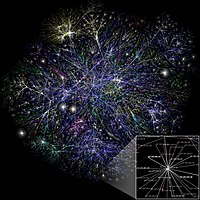Anti-ACTA activists protest across Europe
Sunday, February 12, 2012

Image: Tom Morris.
Guy Fawkes masks were on display in cities across Europe yesterday as part of a protest against the Anti-Counterfeiting Trade Agreement (ACTA), an international trade agreement on copyright and intellectual property that opponents believe will limit free speech online.
Organisers of the protest said about 100,000 people turned up in German cities such as Berlin, Cologne, Hamburg, and Hanover. In Berlin, police estimated 6,500 protestors. Protests also took place in Paris, Sofia in Bulgaria, Vilnius in Lithuania, Valetta in Malta, Tallinn in Estonia, and Edinburgh and Glasgow in Scotland. In London, about 200 people protested outside some major copyright holders' offices. Last month, there were major protests in Poland when that country signed ACTA, which has led to the Polish government deciding not to ratify the agreement, for now. Latvia and Slovakia have both delayed the process of joining ACTA.
Jim Killock from the Open Rights Group, a UK digital civil liberties campaigning group, said ACTA was "undemocratic", "lacked scrutiny", and was "setting up dangerous new pressures to censor the internet".
The United Kingdom have signed ACTA, along with 21 other EU countries. Germany and the Czech Republic have held out on agreeing to it, awaiting a debate on the matter in the European Parliament in June. Baroness Wilcox, the Parliamentary Under-Secretary for the UK's Department for Business, Innovation and Skills, claims signing the treaty was important to help bring about "common enforcement standards and more effective international cooperation" in intellectual property law.
Related news
- "Wikinews Shorts: January 28, 2012#EU official resigns over anti-piracy treaty" — Wikinews, January 28, 2012
Sources
- "Anti-ACTA day: Angry crowds take action" — RT (TV network), February 12, 2012
- Dave Lee. "Acta protests: Thousands take to streets across Europe" — BBC News Online, February 11, 2012
- Josie Le Blond. "ACTA ignites concerns about threat to Internet freedom" — USA Today, February 11, 2012
